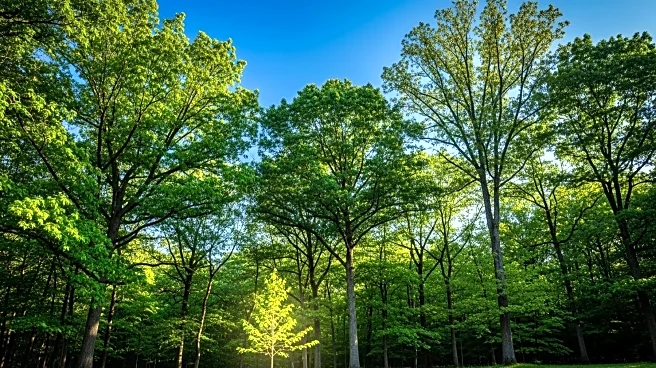What's Happening?
The Latvian Agriculture Ministry is evaluating the possibility of reducing the felling age of trees to enhance economic growth and meet climate objectives. Agriculture Minister Armands Krauze has indicated that this initiative could increase logging volumes, thereby boosting revenue from the Latvian State Forests company and contributing more in taxes from the forestry and wood-processing industries. The proposal aims to create new jobs and stimulate economic growth. Krauze emphasized the need for new forests to replace old ones that emit emissions, suggesting that cutting trees at an earlier age could help achieve climate goals. The current felling ages, dating back to Soviet times, are considered outdated, with spruce trees being particularly vulnerable to degradation by the spruce bark beetle.
Why It's Important?
Lowering the felling age of trees could have significant implications for Latvia's economy and environmental policy. By increasing logging volumes, the initiative promises to generate more revenue and create jobs, potentially boosting the country's economic growth. However, it also raises concerns about sustainability and long-term environmental impact. The proposal highlights the tension between economic development and environmental conservation, as forests are crucial for carbon sequestration. The move could set a precedent for other countries facing similar challenges, influencing global forestry management practices.
What's Next?
The Agriculture Ministry will continue to assess the sustainability of lowering the felling age, ensuring that it does not compromise environmental goals. The proposal may lead to revisions in forest management policies, with potential impacts on international forestry standards. Stakeholders, including environmental groups and industry representatives, are likely to engage in discussions about the balance between economic benefits and ecological preservation.









